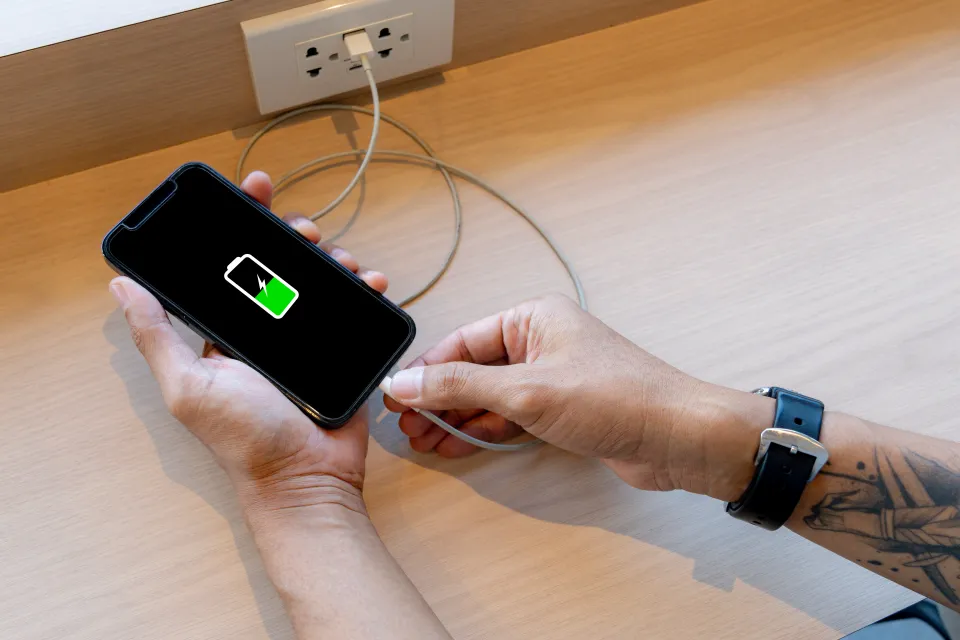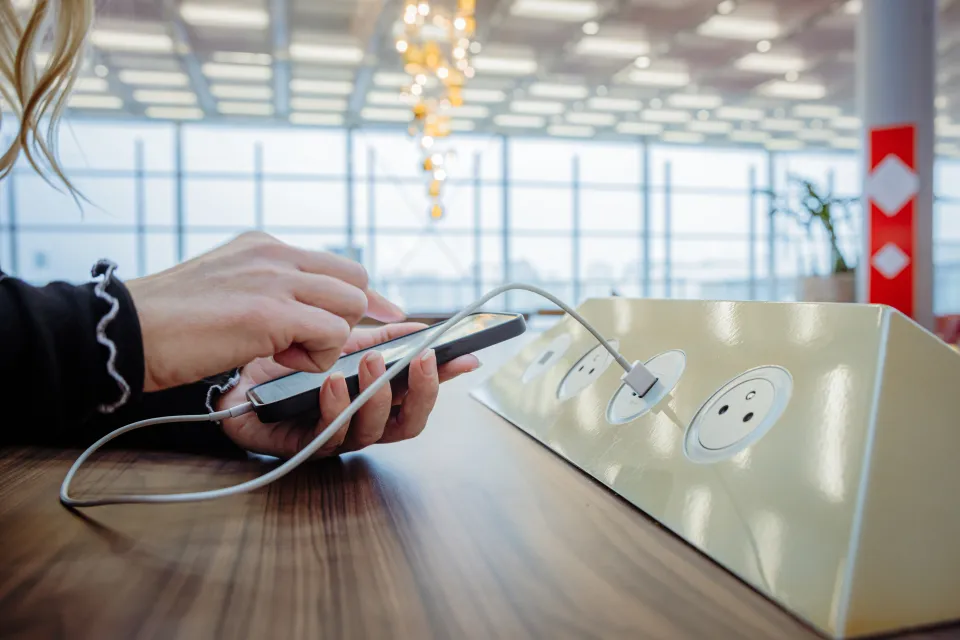Why you should never use a USB port to charge your phone in airports, planes and hotel rooms
PLUGS with USB ports feel like a godsend when travelling abroad, as you don’t have to worry with adapters.
But it turns out that they risk doing more harm than good – and could end up costing you a fortune.

The US Transportation Security Administration (TSA) has warned passengers that using USB ports in airports can potentially make your phone vulnerable to a cyber attack.
In a Facebook post, TSA said: “Hackers can install malware at USB ports (we’ve been told that’s called ‘juice/port jacking’).
“So, when you’re at an airport do not plug your phone directly into a USB port.
“Bring your TSA-compliant power brick or battery pack and plug in there.”
Juice jacking is essentially a form of cyber attack, where public USB ports are used to steal data from or install malware on a device.
The issue isn’t just limited to airports either, as any sockets with USB ports in a public place could be at risk – on board the plane, at train stations, in hotels and in coffee shops.
Through juice jacking, hackers can gain access to sensitive information such as passwords, emails and financial information.
Malware could also be installed, which allows hackers to track online activities – or even fully take over your device.
Firmware could also be impacted, meaning that the security measures on a device could be rendered useless.
The TSA also warned that travellers should not use public Wi-Fi, especially if planning to make online purchases.
So how do you protect your device?
According to cybersecurity company McAfee, “the most straightforward way to avoid juice jacking is to use your own charging cables, plugs and adapters.
They said: “By plugging into a standard electrical outlet rather than a public USB port, you eliminate the risk of data theft or malware installation through compromised USB ports.”
You could also carry a battery pack with you, but make sure to check your airline’s regulations as some do not allow power banks on board planes.
You can also use a USB data blocker, which is a small adapter that attaches to the end of your wire and blocks any transmission for a USB port.
This then only allows power to go through the cable to your phone.
WHAT IS JUICE JACKING AND WHY IS IT A DANGER?

By Jamie Harris, Assistant Technology and Science Editor at The Sun
So-called “juice jacking” has long been a known risk that applies to any USB port you hook your phone up to.
The humble USB can be used for two things – powering up and transferring data.
And it’s the latter that is a cause for concern.
Cyber fraudsters can pull this off pretty easily, using a modified USB port or cable to infect the port.
Once someone plugs in, they can sneakily pass on a virus to your phone, which is capable of spying and more.
The problem is serious enough that even the FBI has warned people against using public USB ports.
However, there have been no known cases reported of it affecting members of the public.
All examples demonstrated by experts have been in controlled environments.
If you want to err on the side of caution, use a traditional electrical outlet instead.
If you are looking to buy a portable charger, here are eight of the best power banks UK for 2025 that have been tried and tested.
Plus, here’s how to charge your phone if you forget an adaptor on your next holiday.


